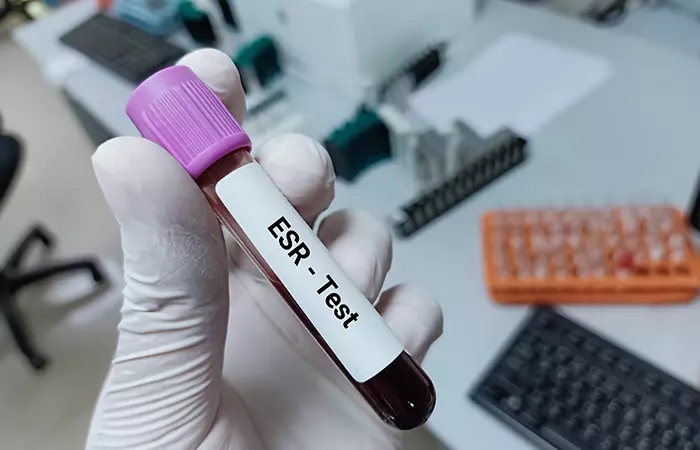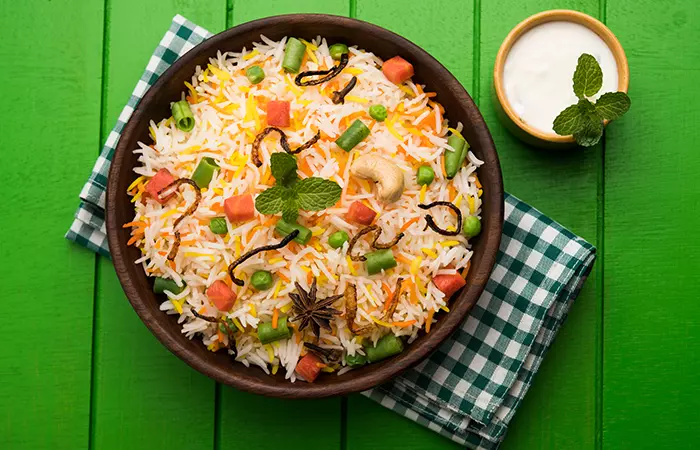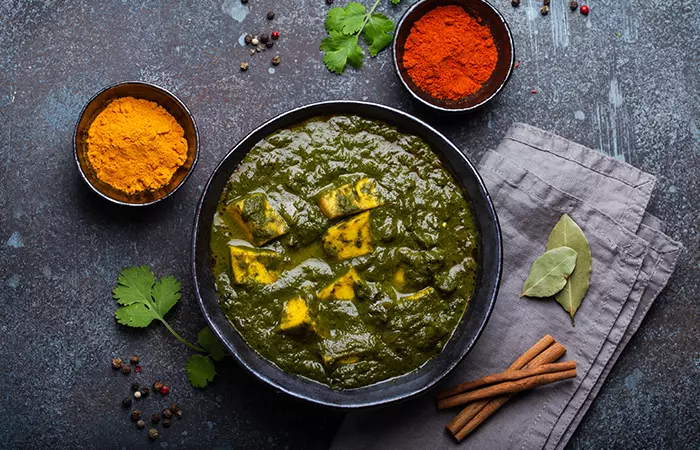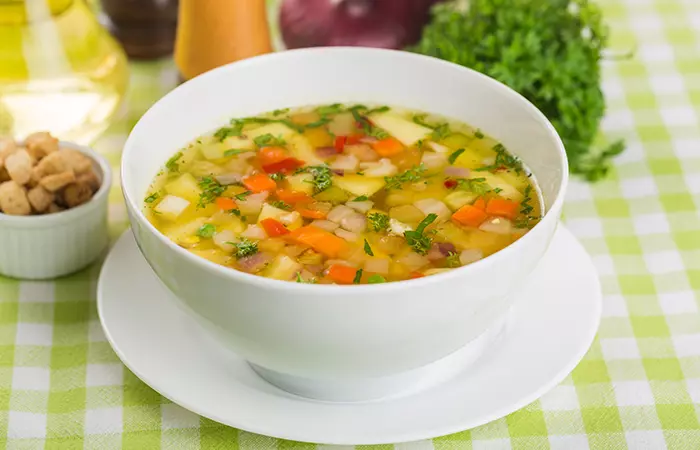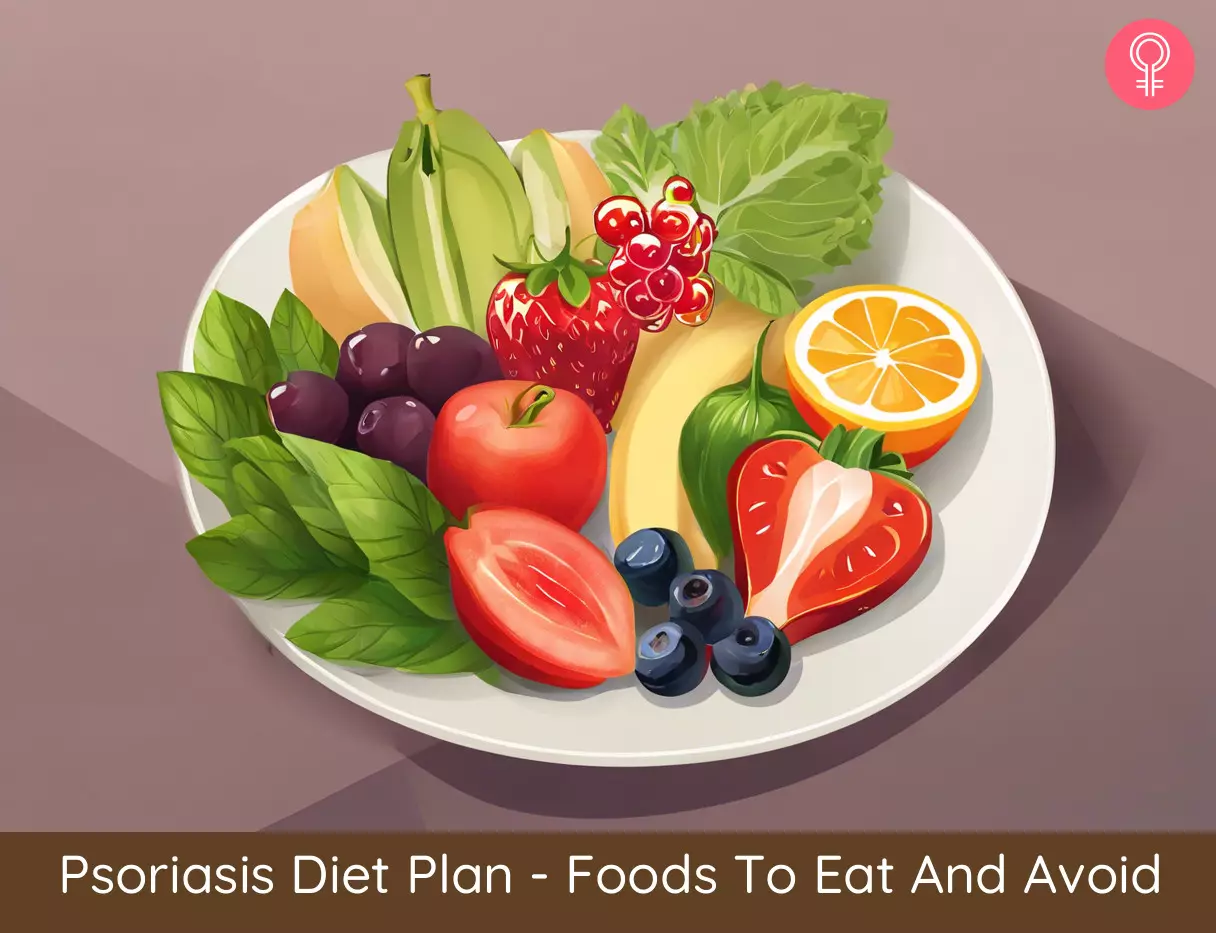Keep reading to find out what you should and should not eat if you have this skin disorder.
What Is Psoriasis?
Psoriasis is a chronic autoimmune condition that speeds up the growth cycle of the skin cells. This overgrowth of cells can lead to scaly, itchy patches, which can cause discomfort. When considering scalp psoriasis vs. dandruff, it is important to remember that, in contrast to dandruff, which has lighter flakes, scalp psoriasis is characterized by thicker, more noticeable scales that often cover larger areas. There are different types of psoriasis, which may vary depending on their look and location on the body. Psoriatic scales or silver patches typically occur on elbows, knees, hands, face, or scalp. Though there is no scientific backing on the exact triggers of this skin condition, researchers have a general idea about the factors based on their decades of observations. It is considered to occur due to genetic and environmental factors (1). People with a family history of psoriasis are most likely to develop this condition. It may also result from an autoimmune attack, in which white blood cells mistakenly attack your skin cells. As per the report, psoriasis affects approximately 2% of the US population, with varying prevalence worldwide. It is more common in the Faroe Islands but less prevalent in the Japanese, Aboriginal Australians, and Indians from South America. Psoriasis can occur at any age, with two main age peaks: the first around 15-20 years and the second around 55-60 years. In addition, factors like alcohol consumption, smoking injuries, and medications may also worsen psoriasis and cause flare-ups.
Can Diet Improve Psoriasis Symptoms?
Yes. Diet may help manage the symptoms of psoriasis to a great extent. However, you have to be mindful of your diet. This chronic inflammatory skin disorder is associated with other conditions like psoriatic arthritis, inflammatory bowel disease, obesity, and diabetes (1), (3). And many foods may trigger inflammatory responses in the body and may worsen psoriasis and other inflammatory conditions, while some foods may help suppress them. Janay Brazier, a blogger, who has psoriasis attests to the impact of a healthy diet on her condition in her blog: “I find it feels a lot better after eating meals with large amounts of vegetables and fish (i).” She also highlights the positive influence of adequate water intake: “It is noticeably better when I’ve had a good run of days when I’ve had a lot of water to drink.” Unbalanced dietary food habits, higher consumption of fat, diet plans with low nutrition content, and a lower fiber intake may also worsen psoriasis symptoms. Studies found that certain foods like alcohol, simple sugars, and saturated fatty acids may trigger inflammation by stimulating reactive oxygen species and related pathways (3). Therefore, it’s crucial to work with your nutritionist and doctors to determine the right diet and supplements according to the severity of your condition and other existing comorbidities. Since inflammation plays a crucial role in psoriasis, detecting and measuring inflammation in the body is the first step to understanding and managing the condition. But how do we know that? Are there any specific methods to measure inflammation? Scroll down for more information!
How To Measure Inflammation In The Body
There are specific tests to measure inflammation in the body. With the help of biomarkers (substances in the blood that can spike when your body reacts a certain way to foods), you can easily detect inflammation. Enzyme-linked immunosorbent assay (ELISA) is often used to measure inflammatory molecules like C-reactive protein, soluble intracellular adhesion molecule-1, and serum amyloid. In addition, fibrinogen and ESR (Erythrocyte sedimentation rate) blood tests can show if you have inflammation in your body (2), (4). People with psoriasis may have significantly elevated levels of proinflammatory cytokines in their serum(5). Tests for C-reactive proteins (CRP) levels may also help determine the inflammation level. Though food can not completely improve psoriasis, it may help manage the symptoms. Below we have discussed foods to eat and avoid to manage psoriasis.
Foods To Avoid
If you have psoriasis, then it is essential to avoid certain foods that may trigger inflammation. They include (3):
Red meat (beef, bacon) Alcohol Simple or refined sugar Dairy products Highly processed foods Eggs Barley and malt Pasta and noodles Wheat and its derivatives Eggplants, tomatoes, and potatoes Paprika and tabasco sauce
Consuming a healthy and balanced diet comprising of anti-inflammatory foods may benefit you. Scroll down to take a look at some of the healthy foods you can include in a psoriasis diet.
Foods To Eat
A diet comprising foods rich in omega-3 fats and other anti-inflammatory properties may help lower inflammation and improve symptoms. You may consume:
Fruits and vegetables like grapes like grapes, berries, leafy greens, and broccoli. Flaxseed oil, coconut oil, and olive oil Fatty fish like cod, salmon, and sardines Whole grains Lean protein Legumes like lentils and beans
Planning your meals including all these food suggestions in mind can make the entire process more effective. Here is a sample psoriasis diet plan.
Psoriasis Diet Plan
Brussels sprouts (1 cup) and green tea (1 cup) or turkey bacon or turkey/chicken sausage. Brown rice (1 cup) with steamed fish and vegetables and salad (seasoned with olive oil) In addition, some diet plans may also help reduce inflammation. Here’s a list of diet plans suitable for people with psoriasis: In addition, anecdotal evidence suggests that the following vegan, keto, and paleo diets may help improve the symptoms associated with psoriasis. Eating healthy doesn’t have to be boring. Scroll down to the next section to learn some tasty recipes for the psoriasis diet.
Psoriasis Diet Recipes
1. Veg Pulav
What You Need
1 cup of basmati rice (soaked for 20 minutes) 2 cups of water 2 tablespoons of oil 1 teaspoon of cumin 5 cashew nuts Half an onion (sliced) 1-inch cinnamon stick ½ cup of beans ½ a bell pepper (diced) 1 teaspoon salt ½ a carrot (diced) 2 cardamom pods 1 bay leaf 3 cloves 1 teaspoon of salt
For Masala Paste
1/4 cup of mint leaves ½ cup of coriander leaves ¼ cup of water 1-inch ginger 2 chilies 2 garlic cloves 1-inch cinnamon stick 5 cloves 1 teaspoon of fennel
Process
2. Spinach Curry
What You Need
2 cups of fresh spinach 2 tablespoons of olive oil 1 large onion (chopped) 1 teaspoon of ground cumin 1 teaspoon of turmeric 1 teaspoon of fresh ginger paste 1 teaspoon garam masala 4 garlic cloves (minced) ¼ cup of vegetable stock Fresh cilantro Salt to taste
Process
3. Vegetable Soup
What You Need For Soup
3 teaspoons of oil 1-inch ginger (minced) 2 tablespoons of spring onion 1 carrot (diced) ½ cup of beans 3 garlic cloves (minced) 4 cups of water ½ a capsicum (diced) 2 tablespoons of cabbage (finely chopped) 2 tablespoons of peas 1 tablespoon of sweet corn 1 tablespoon of vinegar ¾ cup of water ½ teaspoon of chili flakes ½ teaspoon of pepper ½ teaspoon of mixed herbs
For Slurry
¼ cup of water 1 teaspoon of corn flour
Process
Final Thoughts
An autoimmune condition like psoriasis can benefit from including healthy foods in the diet. A psoriasis diet must include anti-inflammatory foods like lean proteins, healthy oils, and whole grains. Avoiding alcohol and highly processed foods may also help improve the symptoms of this inflammatory skin condition. In addition, considering certain diets like low-calorie, vegan, and gluten-free diets may help benefit people with psoriasis. Also, consuming food that contains low sugar is important. However, it is always best to consult a doctor or a nutritionist to plan your diet according to the severity of your condition and other factors. Is egg good for psoriasis? No, eggs contain polyunsaturated fats, which play a massive role in triggering psoriasis. Hence, one must avoid eggs. Is milk good for psoriasis? No, dairy is high in saturated fats and may trigger inflammation and flare-ups. Is chicken good for psoriasis? Yes. Chicken breasts are a great source of protein and are highly nutritious. However, avoid fried chicken, as it may cause inflammation. Does coconut oil help psoriasis? Applying coconut oil may manage skin dryness caused by psoriasis. However, it may not work for everyone, especially those with a nut allergy. Is saltwater good for psoriasis? You may soak in salt water. This would help soften the scales, remove the dead skin, and relieve the itch. However, it may also lead to dryness.
Illustration: Psoriasis Diet Plan - Foods To Eat And Avoid
Discover the power of food choices in managing psoriasis and avoiding flare-ups. Unveil the foods that you should include or avoid for optimal skin health in this insightful video. Watch it now!


